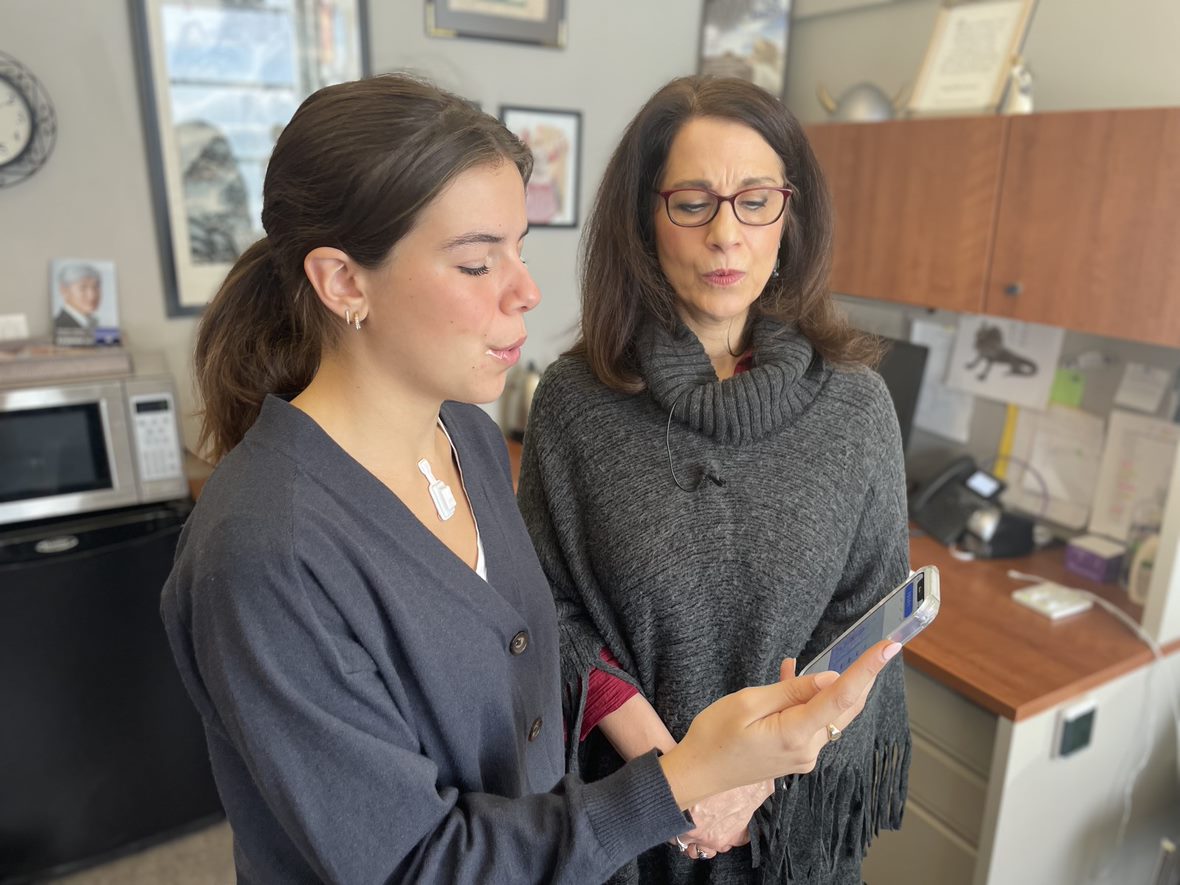This show is in its fifth season, we’re closing in on a thousand episodes, and while I love sharing the podcast with you every day, I have to say, there are days when my voice gets tired.
There’s a team at Northwestern University that’s ready to help the tired vocal cords of the world: a wearable device that can tell when a voice needs a break.
The wearable device attaches in a user’s upper chest, and it starts tracking the vibrations we make with our voices.
It can even tell the difference between speaking and singing.
The wearable piece sends all that vibration data to the user’s phone or tablet, and once the user tells the companion app how much singing or talking is too much, the system will send notifications each time the device notices the vocal cords are showing signs of strain or stress.
They can rest their voices and take other steps to keep the voice healthy before really overdoing it, because pushing past your physical limits can actually damage your voice.
If you’re, say, a professional singer, you don’t want to find out that you’ve sung yourself hoarse and done long-term damage to your singing voice, and you definitely don’t want to find out when it’s too late to do anything about it.
So an early warning system would be handy, and not just for singers.
Voice actors, public speakers, and teachers could all benefit from a system like this.
Who knows, maybe it could even help podcast hosts.
Though what I really need is a wearable device that tells me when my friends are tired of hearing me talk.
Today in 1902, the birthday of John Steinbeck.
The Nobel Prize winner wrote literary classics like The Grapes of Wrath, East of Eden and Of Mice and Men… and he once wrote a werewolf novel.
Stanford Magazine wrote a few years back about Steinbeck’s unpublished novel Murder At Full Moon, which he apparently wrote in just nine days and attributed to the pseudonym Peter Pym.
There’s a full manuscript at the University of Texas, but Steinbeck’s literary agency says the author didn’t want it published and so it’ll stay that way.
First wearable device for vocal fatigue senses when your voice needs a break (Northwestern University)
Beast of Eden (Stanford Magazine)
Raise your voice and help this show grow as a backer on Patreon

